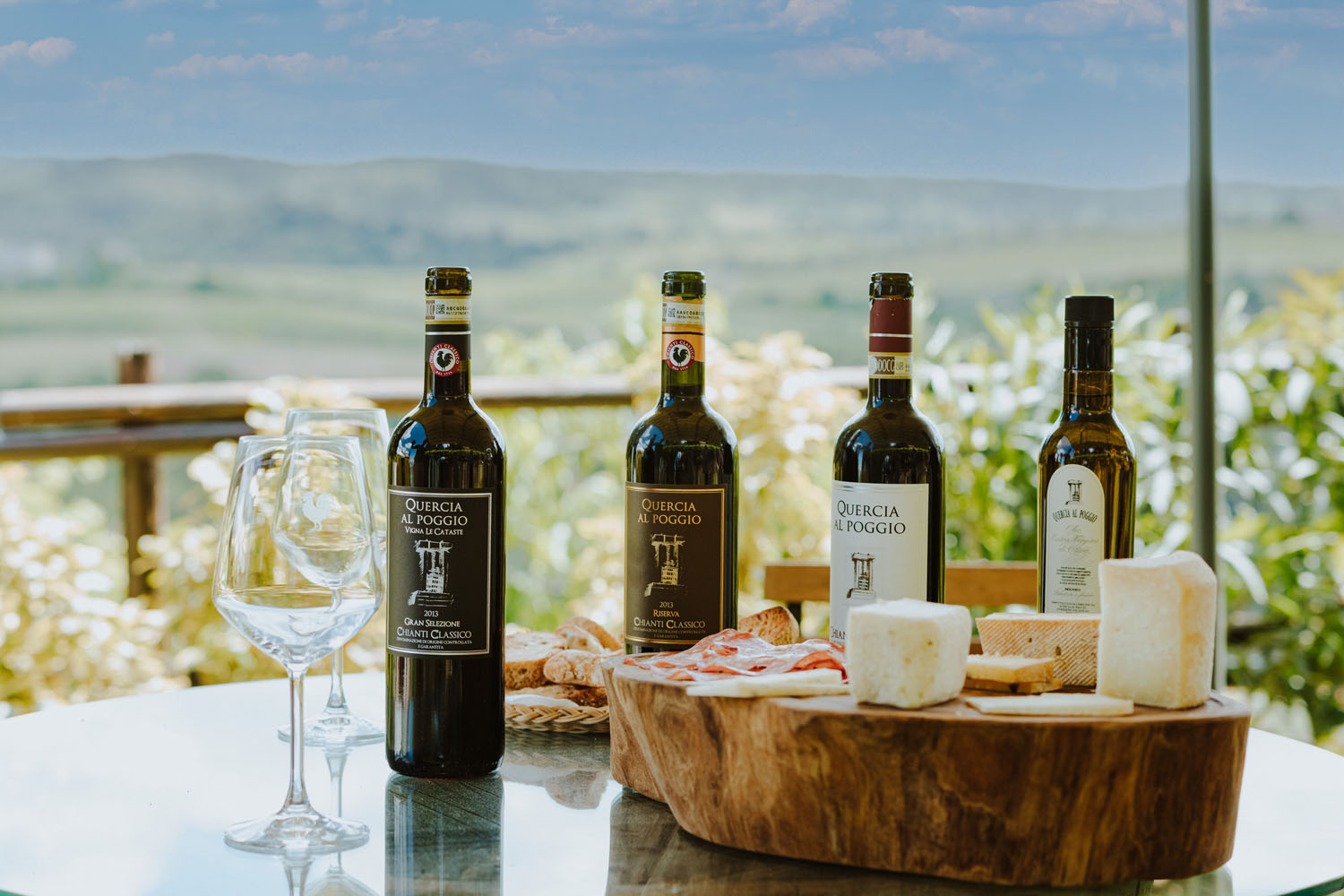
Sustainability and Wine: The Eco-Friendly Approach of Our Wine Tour in Tuscany.
In the heart of the magnificent region of Tuscany, and more specifically in the heart of the Chianti Classico region, amid rolling hills and vineyards that fade into the horizon, a unique combination of age-old tradition and growing environmental awareness is developing.
The world of wine in Tuscany, famous for its fine grape varieties and production of excellent wines, is undergoing a phase of profound transformation. At a time when sustainability has taken center stage in our vision of the future, we at Fattoria Quercia al Poggio also strongly embrace ethical and environmental principles.
This marriage of past and future, of the richness of winemaking traditions and the urgency of preserving our land, makes sustainability in the world of wine in Tuscany an issue of extraordinary relevance.
Our sustainable and eco-friendly wine tasting (wine tour) in Tuscany
Ours can be said in its own right to be a sustainable wine tour; it takes place in the heart of the Chianti Classico area, and not only offers a delightful experience for wine lovers, but is also committed to minimizing environmental impact and promoting sustainability.
A visit to our wineries is the central point to begin telling the story of our commitment to sustainable winemaking practices such as organic farming. During the visits, guests could learn in depth about these practices and how they contribute to sustainability.
Tastings of our organic wines are paired with typical local and organic zero-mile products. This way, in addition to supporting local agriculture, we would laugh at reducing the environmental impact associated with transporting produce from other regions.
We use eco-friendly sustainable packaging for all our products, such as lightweight bottles or recyclable materials, which can are presented and explained during the tour.
In order to be in line with our environmental policy, the tour includes walking trails among the wineries, vineyards and areas surrounding the farm, allowing guests to immerse themselves in the scenic beauty of Chianti in a sustainable way.
During the tour, recycling practices are adopted, helping to reduce environmental impact and raising guests’ awareness of the importance of recycling.

How we produce wine through Sustainable and Eco-friendly Practices.
Fattoria Quercia al Poggio’s sustainable viticulture and winemaking practices include several measures aimed at reducing the overall environmental footprint of wine production.
Sustainable viticulture
We adopt a certified organic farming system in synergy with biodynamic practices as well. This involves the elimination of synthetic chemical pesticides and fertilizers and the use of natural compounds for fertilization.
Great attention to soil conservation techniques, such as the use of vegetated covers and the practice of reduced plowing, can be adopted to preserve soil health and prevent erosion.
We have an integrated system for biodiversity through planting of vegetation covers and implementation of companion plants to foster a more balanced environment while minimizing the need for aggressive human intervention.
Sustainable Vinification
Starting next year, we have planned a heavy investment in the installation of a photovoltaic system that will allow us to use renewable energy sources, this is to strongly contribute the reduction of energy use from non-renewable sources.
The use of wood chips improves energy efficiency in winemaking processes, as does the use of energy-efficient equipment, to support a sustainable strategy.
Great attention is also paid to reducing the use of non-recyclable materials and implementing waste reduction practices. As is the use of sustainable packaging, such as lightweight bottles or recyclable materials, is also an important aspect of reducing the overall environmental impact.
Efficient irrigation techniques significantly reduce water consumption in the vineyards. In addition, rainwater harvesting is implemented and allows us to be totally independent of conventional water resources. The soils are sown with green manure and not perennially grassed, that is, in the fall we work the soils to prevent compaction, albeit superficially where, due to too steep a slope, there is a risk of soil erosion, while for the rest of the year, we work only under the rows to give oxygen to the vines, naturally and mechanically weeding out the grass that there growing would take energy away from the vines when they need it most in the spring.
Quercia al Poggio is a winery with Organic Certification, which attests to and guarantees the winery’s commitment to sustainable production practices.